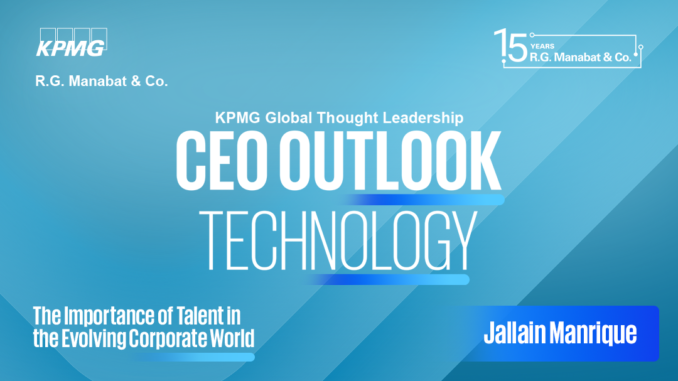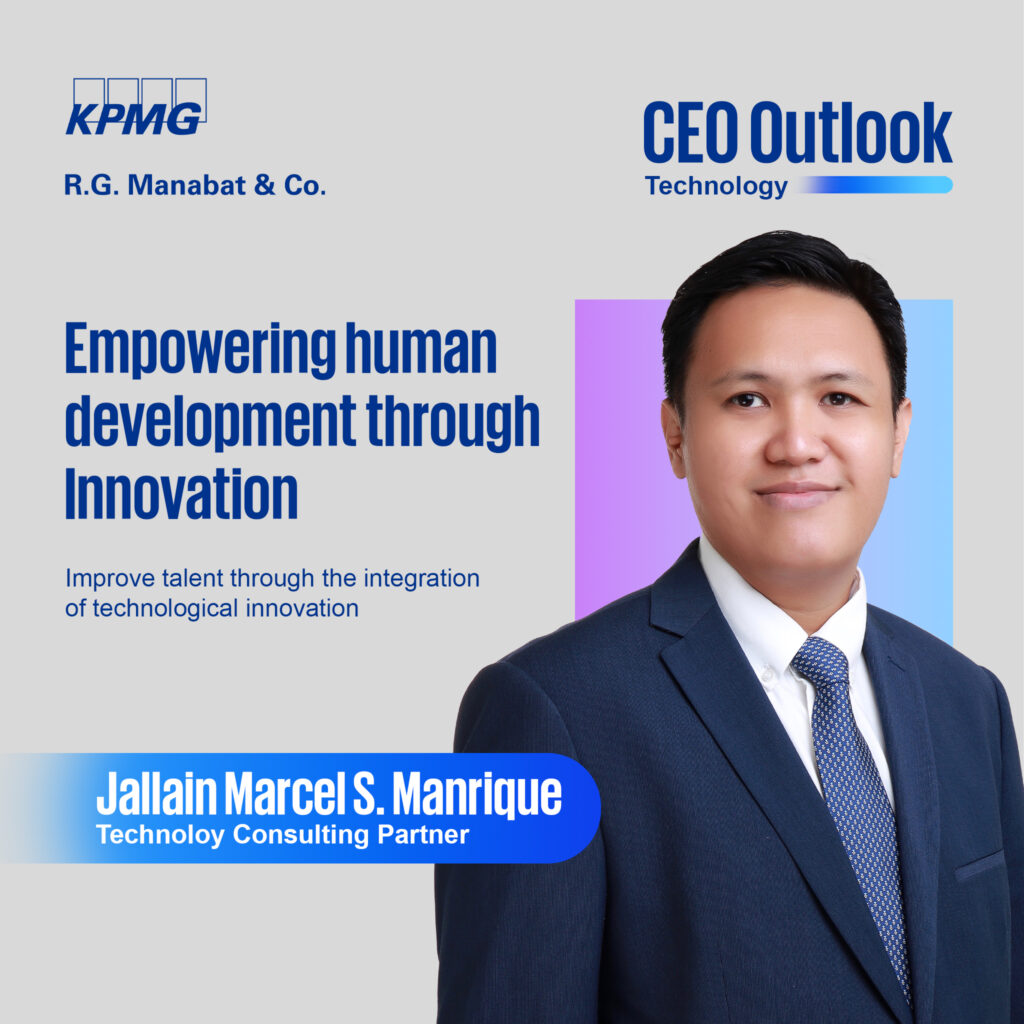
Technology: Strategic Business Investment
KPMG’s CEO Outlook 2022 survey reveals the insights of 1,325 global CEOs across 11 markets in their 3-year outlook on the business and economic landscapes. Moreover, it reveals the change in strategy of CEOs amidst global uncertainties such as the Russia-Ukraine war, however, it all boils down to a generally positive outlook in facing the future.
Despite all these, 71% of CEOs globally are confident in the domestic economy and national growth prospects with the majority believing that they are prepared for the looming recession and other uncertainties posed by the changing times. In response to geopolitical uncertainties, 80% of them are adjusting risk management approaches. Businesses today are eager to adapt to rapid changes within the digital landscape.

Technology as a strategic business investment
Businesses nowadays see the use of cyberspace as a strategic function, with them shifting their investments to digitalization for their brand’s growth. It also means realigning their functions to have a more purpose-driven digital experience when it comes to delivering quality services and accomplishing strategic goals.
In fact, 71% of CEOs globally have shifted to an aggressive digital investment strategy and 76% of CEOs globally see information security as a potential competitive advantage.
To fully realize the benefits of investments in technology, trainings, and programs to upskill and equip employees must be in place. While advancing digitalization is important for business growth, companies must also ensure that the people in their organizations that will use these technology platforms are comfortable and adept in using them. It is important to bridge the gap between people and technology to fully realize the advantages that these digital investments bring.
Transforming work with AI
Artificial intelligence (AI) transforms businesses by freeing up its manpower to do high- value and more impactful activities. It creates efficiencies and streamlines work processes. AI tools are versatile and a wide range of platforms are already commercially available.
According to Jallain Marcel Manrique, the Head of Technology Consulting of KPMG R.G. Manabat, “It starts in terms of transforming the backend of an organization, with AI driving the creation of products and new solutions that improve customer experience.” However, AI adoption requires money, time and focus on transforming work processes. Manrique adds, “If a company does not get their transformation roadmap right at the start, then it may cost them more in the long run. That is why involving third parties such as consultants and vendors at the start of their AI adoption proves is critical.”
Reinforcing cybersecurity
CEOs are also keeping in mind technology risks when it comes to digital transformation and investment amidst cybersecurity threats and geopolitical uncertainty. It can’t be overemphasized that cybersecurity is no longer just an IT issue but an overall business concern. As innovations rapidly change the digital landscape in the business industry, so do the risks and threats to data security posed by malware and hackers that also innovate their processes. Corporate leaders must invest in digital opportunities to ensure business growth, such as utilizing valuable third-party partnerships, to ensure cybersecurity and to be closer to customers.
This is a core aspect that the firm believes in;
“Hackers don’t break in, they log in. Awareness and a mindset of accepting that hacking is a possibility allows organizations to prepare for the worst-case scenario and anticipate the threat when designing business models.”
Jallain Marcel Manrique, Head of Technology Consulting of KPMG R.G. Manabat & Co.,
